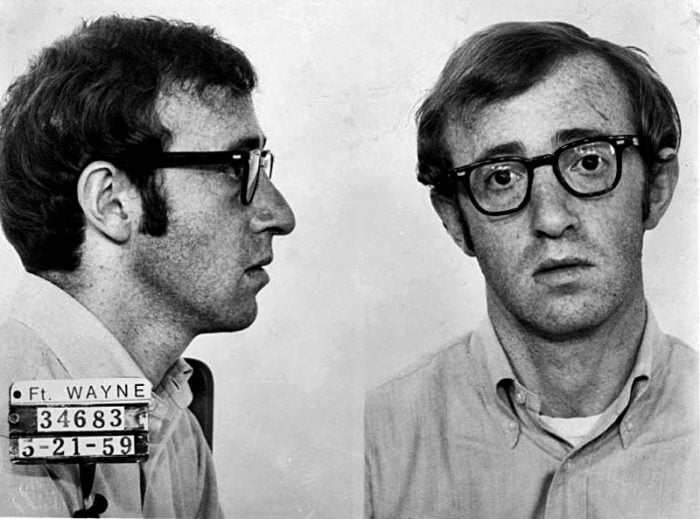The power of comedy seems to stem from its capacity to tell the truth. Comedy at its best voices shared thoughts and expresses individuals’ often neglected feelings. Much like the sounding of a dog whistle, those who relate to a comedian’s anecdotes feel an implicit connection to him or her. Comedians’ ability to say what everyone is thinking makes them beacons of truth in an age of increasing dissimulation.
Why is it then that in an art form seemingly so dependent on truth we find so much deception? With each new ‘Me Too’ headline this trustworthy image of the comedian is being chipped away, revealing the man behind the curtain.
The accusations male comedians face – from sexual misconduct to rape – suggest that perhaps they are not the wizards of authenticity, but that their skill lies in their ability to dissemble.
The persona of the comedian is key to their audience’s perception of them. If laughter binds people together, the adulation that it elicits also constrains them to a singular viewpoint. The attitude and style of someone’s stand-up act becomes inseparable from their appearance in real life. The character they play becomes their public image. So much so that in seeing a comedian’s face an emotion or name becomes a reflex, so that Matt LeBlanc became Joey, and Bill Cosby became Mr Huxtable.
Bill Cosby’s role as the loveable Dr Cliff Huxtable on The Cosby Show made him America’s favourite bumbling father. The Cosby Show followed an upper middle-class black family that defied racial stereotypes and confirmed Cosby’s status as a cultural icon.
His ability to make young black people laugh misled them into thinking he was Mr Huxtable. His stand-up routine through the years also played on this image, and as he got older he hammed up his blundering ignorance, often seeming to wander off topic before falling into the punchline.
But there was nothing accidental about his joke-telling – everything was carefully calculated, just like his alleged sexual abuse. His frequent objections to the verbal profanity of new comics disguised the actual immorality of his own actions.
Cosby’s comedy created a powerful mask for his machinations, which not only caused women to trust that he wouldn’t drug and rape them (as he allegedly did to over 50 women) but also meant that a whole generation of people were resistant to accept the truth.
A comedian’s persona needn’t be entirely positive to conceal his misdeeds. Many male comedians have in fact used self-deprecation for years to cover up sexual misconduct. Louis CK’s stand-up is based on the premise that he isn’t a good guy, that he’s flawed just like you.
His comic admissions of his own defects do not make the audience sceptical of his real-life actions but instead throw them off the scent. His confessions of sexual perversion are so candid, so apparently self-aware, that his audience is tricked into believing him too honest to commit a real offense.
The irony of many male comedians’ self-deprecation is that it is so dishonest. By presenting superficial flaws as the worst parts of themselves, they keep the audience from thinking their shortcomings are anything serious.
Woody Allen bills himself as anxious, socially awkward, charming, not manipulative and malignant. Louis CK professes on stage, ‘self-love is a good thing, but self-awareness is more important – you have to once in a while go ‘uh I’m kind of an asshole’’. What he leaves out is that ‘kind of’ is too kind.
Recently many male comedians have attempted to steer classic comedic gender tropes into more progressive territory. Louis CK has repeatedly asked questions like ‘How do women still go out with guys, when… there is no greater threat to women than men?’. He feigns awareness of a broken sexual culture, and in chastising most men, manages to cast himself as the good guy – the comedic equivalent of ‘Not All Men’.
Of course, we now know that he is in fact the opposite. His insistence that female comics watch him masturbate demonstrates his inherent lack of respect for women; a belief that they only exist to satisfy his sexual needs.
Although new allegations against Aziz Ansari pale in comparison to those made against Louis CK, Ansari’s alleged blindness to the discomfort of his date makes a similarly stark contrast with his public persona of gender-‘wokeness’. His comedy presents him as the nice guy of all nice guys, not someone who would leave you crying on the taxi ride home.
The gap between stand-up act and real-life action leaves the audience to think that these men should have known better, and to wonder if they did. It is hard to feign ignorance when your comedy claims to be so enlightened. Yet laughter is disarming and its powers of deception ultimately shock us; we are seduced by the punchline, while its owner doesn’t give women the same choice.



